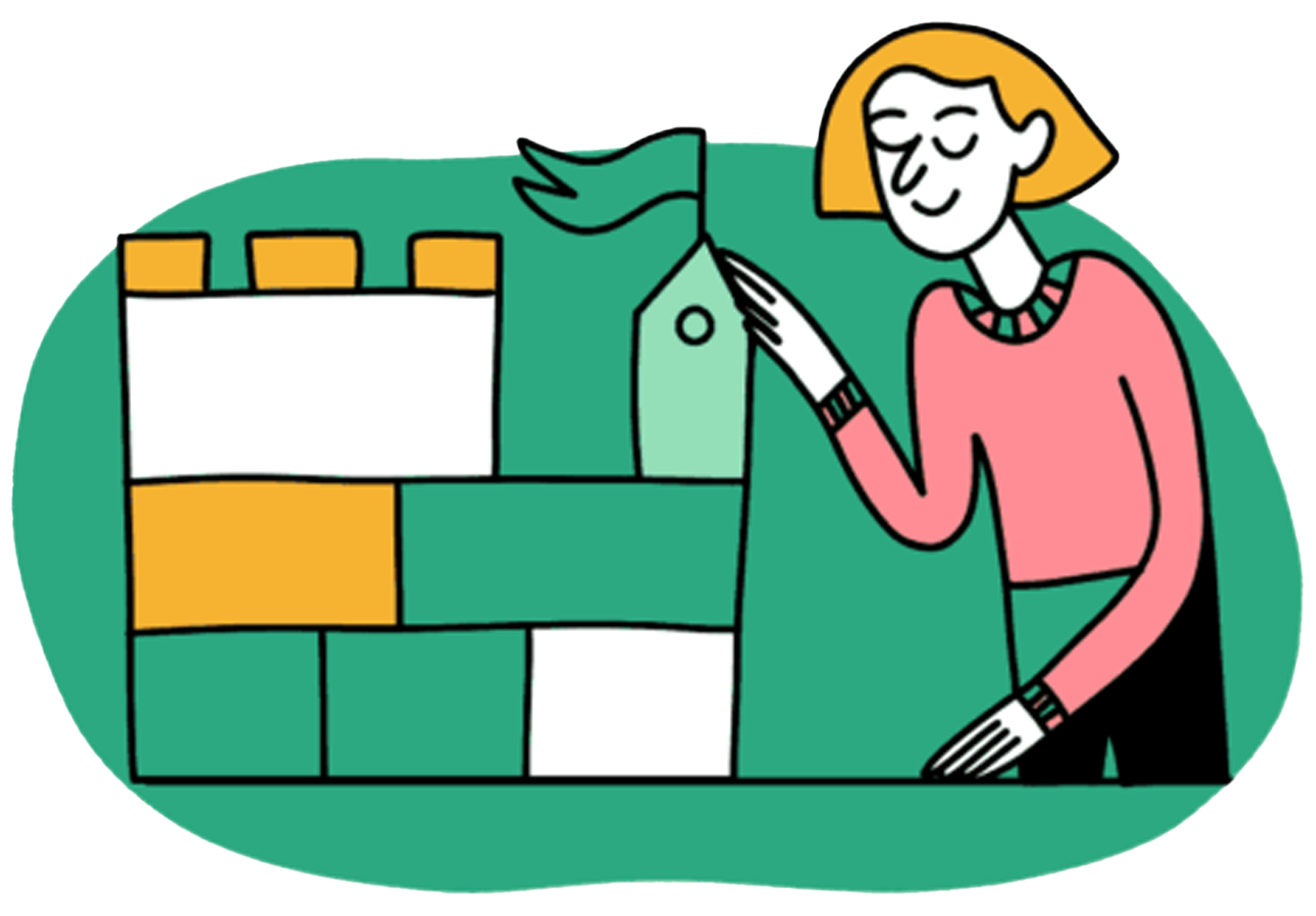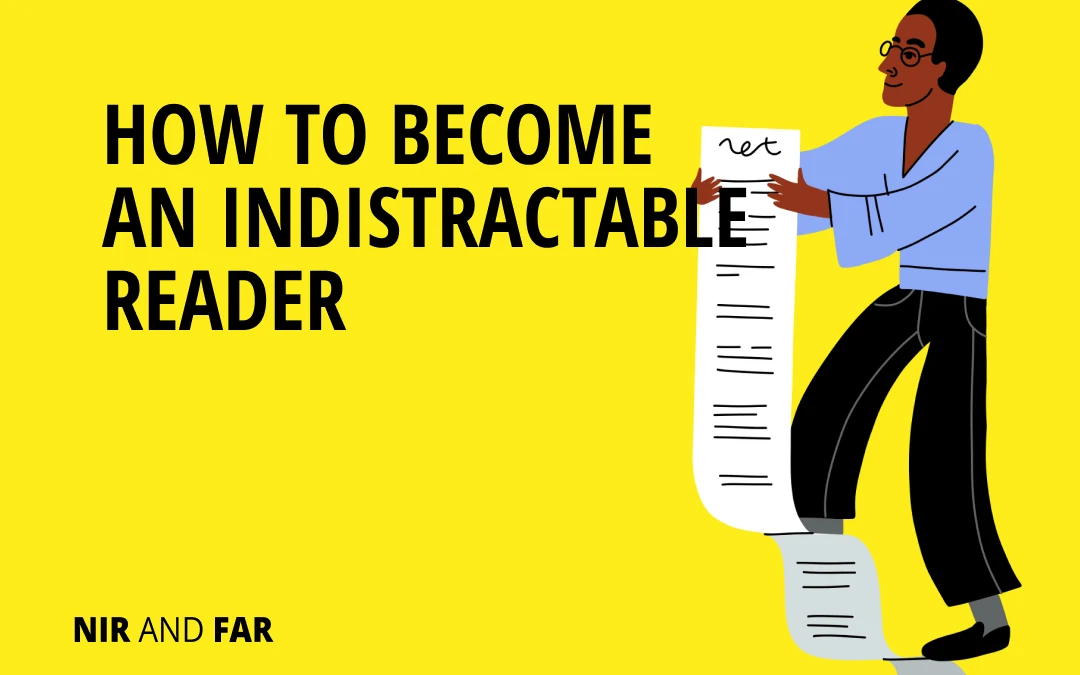Nir’s Note: This guest post is by Nicholas Hutchison, founder of BookThinkers and author of Rise of the Reader.
When I was growing up, you couldn’t pay me to read a book about self-help or business. Now, I read between 60 to 80 books every year.
A good non-fiction book is the distilled knowledge of years of research and insight and costs just a few bucks. Why wouldn’t you take advantage of such a cheap, efficient way to learn lessons that could change your life without having to do the work or live the experiences the author had to bear?
The trouble with books is that, duh, you have to make time to read them. You also have to sustain your focus long enough to absorb the lessons learned.
I became a voracious reader in college. During my senior year, I took a sales internship at a local software company. My boss, Kyle, learned I was commuting an hour each way, five days a week. He recommended that instead of listening to 10 hours of music, I try listening to business podcasts. He argued that the same music every day wouldn’t change my life, but the right podcast might.
Listening to these podcasts, I heard certain book titles mentioned over and over. It was as if every successful person on the planet had read the same handful of books: Hooked by Nir Eyal, Outliers by Malcolm Gladwell, and The 4-Hour Workweek by Tim Ferriss, to name a few.
I realized that if I ignored the books that made these people successful, I was deliberately choosing to live beneath my potential. After one trip to a local bookstore, I was hooked (Nir Eyal pun intended).
Over the years of building BookThinkers, I have received hundreds (maybe even thousands) of questions related to the reading process. Most of these questions center around choosing the right books, developing great reading habits, and implementing more of what we read.
Competing with all the tasks fighting for space in our calendars, reading to learn often loses the battle. Some books, while super helpful, may not exactly grab your attention the way social media or your email inbox might.
This is where Nir Eyal’s Indistractable Model comes in. It’s a powerful four-step framework that can help you not only make time to read more but also enjoy more of what you read, which will put you on the path to implementing the wisdom from these books.
Free Schedule Maker Template
Take back control of your time and design your ideal day.
Your email address is safe. I don't do the spam thing. Unsubscribe anytime. Privacy Policy.

Master Internal Triggers: Have Fun Turning the Pages
We can all agree that reading renowned self-help and business books comes with myriad benefits. Still, some of us may not enjoy the act of reading them. Or maybe you generally enjoy reading, but self-help and business books aren’t exactly the imagination-stirring fiction stories you typically lose yourself in. As a result, reading these books may make us feel bored or restless.
Nir Eyal writes that those internal triggers, or negative feelings, are the foundational cause of our distraction. When we feel bored or restless as we read, that discomfort prompts us to pick up our phone and scroll or turn our attention to some other distraction.
The key to fighting distraction lies in our reaction to internal triggers. Nir asserts, “Unless we deal with the root causes of distraction, we’ll continue to find ways to distract ourselves. Distraction, it turns out, isn’t about the distraction itself; rather, it’s about how we respond to it.”
He developed four steps to mastering internal triggers by exploring them with curiosity rather than contempt. Another technique he offers, which encourages people to reimagine difficult work as fun, is particularly useful for reframing reading as a captivating activity.
The technique is based on the research of Ian Bogost, a professor at the Georgia Institute of Technology, who found that incorporating play into a dull task by finding the novelty and variability in it frees us from the discomfort of doing that task—and, therefore, prevents distraction.
Applying this technique to reading involves appreciating the inherent variability and excitement that a great book offers. Similar to ever-changing and dopamine-inducing social media feeds, every turn of a page in a book brings new perspectives and ideas, catalyzing engagement and curiosity.
By reading to learn something impactful or solve a specific problem, we imagine the next page might hold the key to our questions. Think of reading as an exciting journey: Every page you turn might reveal a valuable insight or a solution you’ve been seeking. The variability keeps us engaged and less prone to distraction. The more pages you turn, the more knowledge you acquire.
Reading becomes an imaginary casino, where every page turn is like a roll of the dice, and you might just win big by discovering a life-changing insight on the next page.
Make Time for Traction—aka Reading
If you’ve decided that reading will help you live your values and meet your goals, then reading is traction—an action that moves you toward what you want. (Distraction is the opposite: an action that deters you from what you want.)
To become an effective reader, you must make time for it. This means scheduling traction, or your reading sessions, just as you would schedule other important tasks in a timeboxed calendar.
Having a designated reading time increases the likelihood that you will spend time reading. Note that you don’t have to spend an hour reading every day to make progress.
In my book, Rise of the Reader, I recommend that beginners read for 15 minutes (enough time for roughly 10 pages) in the morning and the evening on weekdays. That amounts to 20 pages a day, which is 100 pages a week and 5,200 pages a year—the equivalent of more than 20 books!
To harness the benefits of reading, it’s crucial to stick to your reading schedule consistently. Just like any other routine, reading requires discipline and regularity. By firmly adhering to your scheduled reading times, you transform reading from a sporadic activity into a steady, enriching part of your daily life. This not only helps you reach your reading goals but also ensures that reading becomes a lifelong routine, which opens doors to endless knowledge and motivates you to implement that knowledge for personal growth.
Remember, it’s not just about reading more; it’s about making reading a consistent and non-negotiable part of your day.
Hack Back External Triggers: Put Your Phone in Timeout
How many times have you sat down to read for an hour, but then heard your phone ding and decided to check it quickly, only to find yourself scrolling Instagram Reels for an hour? As Nir writes, notifications from email, text messages, and social media—called external triggers—are the biggest culprits of distraction and can be detrimental to your reading experience.
To become Indistractable, hack back these external triggers. Turn off notifications, create a designated reading space, and ensure your environment is free from external triggers—which can also include interruptions from other people!
If you live with others, create a sign to indicate you shouldn’t be disturbed. For example, wear earphones or place a Do Not Disturb or red-light sign next to you.
One of the tools that I’ve been using to minimize external distractions over the past couple of months is a Kitchen Safe Timed Lock Box. Whenever I have a hard time staying away from my phone but need to read, I put my phone in the box and set the timer for 60 minutes. The little impenetrable lockbox makes it impossible for me to use my phone during the reading session, and as a result, I can concentrate on the book.
Make a Pact for Accountability
yourself to read one chapter before allowing yourself to engage in other activities. You can also precommit to a reading schedule by telling friends or family about it so they can support and encourage you. To kick it up a notch, you might even make a pinky promise with a friend to read on schedule or join a group of like-minded readers.
By forming an accountability group, I not only grew from the knowledge I was gleaning from the books I read, but I also grew closer to friends who were on the same journey. My book group meets every Friday. We share the best takeaways from the books we read and discuss how to take action on what we learned.
Another accountability option is to RSVP to a silent book club. At these gatherings, people meet in a public space to read any book quietly for an hour or so. Google “silent book clubs near me,” or check Meetup for event listings.
Becoming a Better Reader
I firmly believe that our lives can be improved by reading and taking action on personal development books—and becoming Indistractable is the key to unlocking the wisdom within those books.
So, go ahead, pick up that book, apply the Indistractable Model, and become a better reader who not only improves their lives with new insights but also transforms that wisdom into action.
Related Articles
- Schedule Maker: a Google Sheet to Plan Your Week
- Habit Tracker Template in Google Sheets
- The Ultimate Core Values List: Your Guide to Personal Growth
- Timeboxing: Why It Works and How to Get Started in 2024
- An Illustrated Guide to the 4 Types of Liars
- Hyperbolic Discounting: Why You Make Terrible Life Choices
- Happiness Hack: This One Ritual Made Me Much Happier

